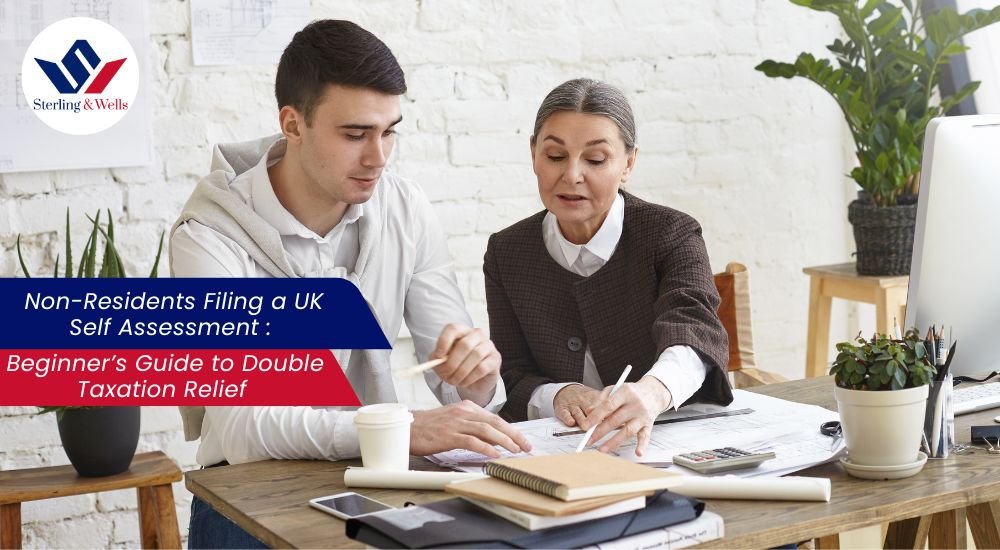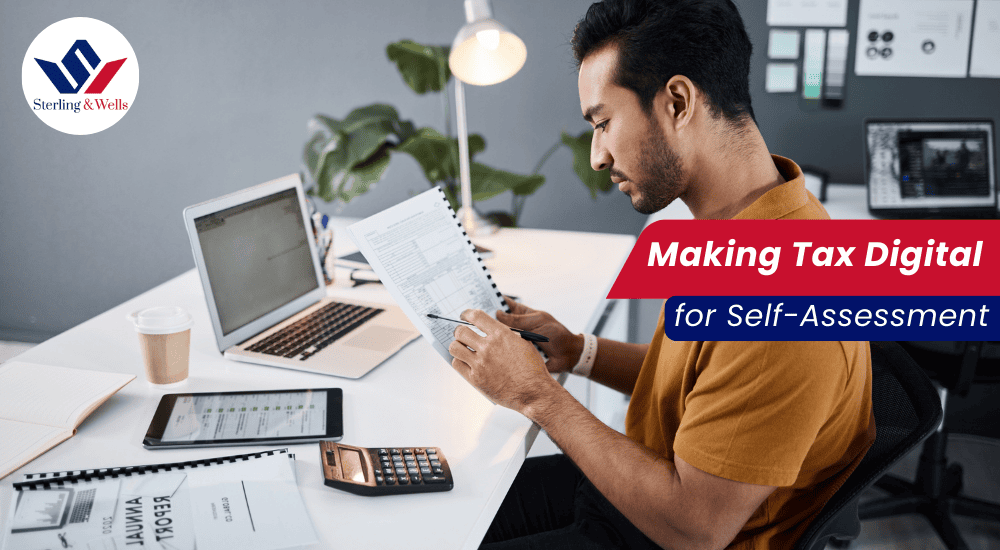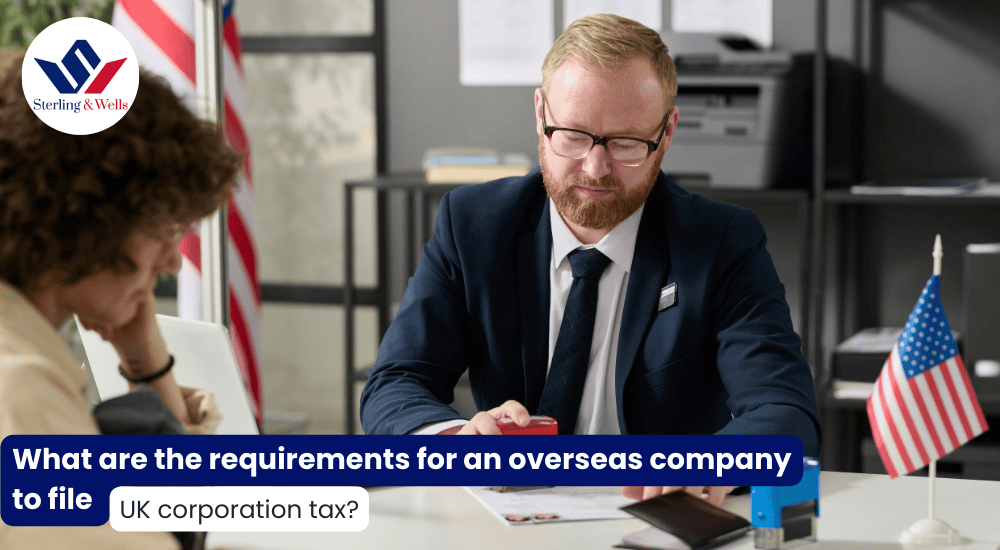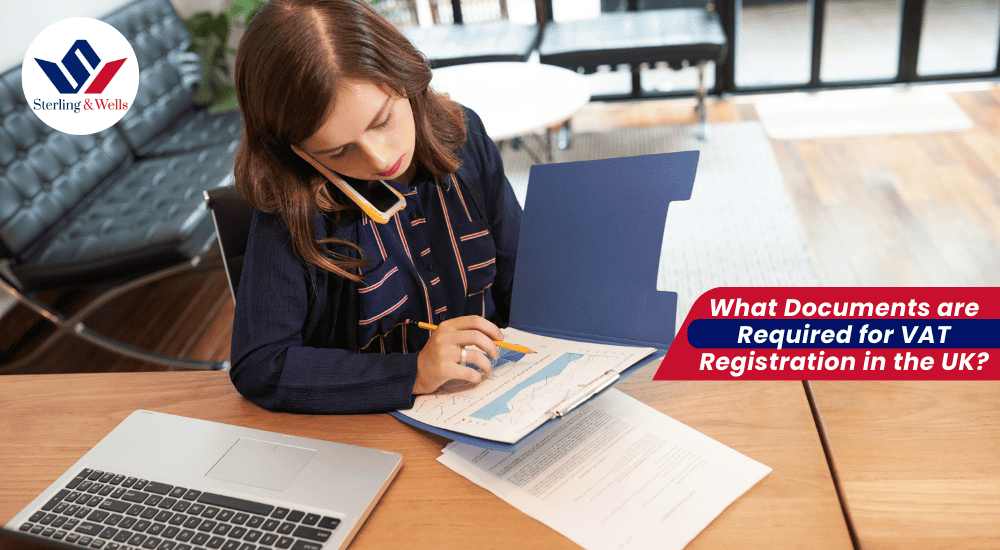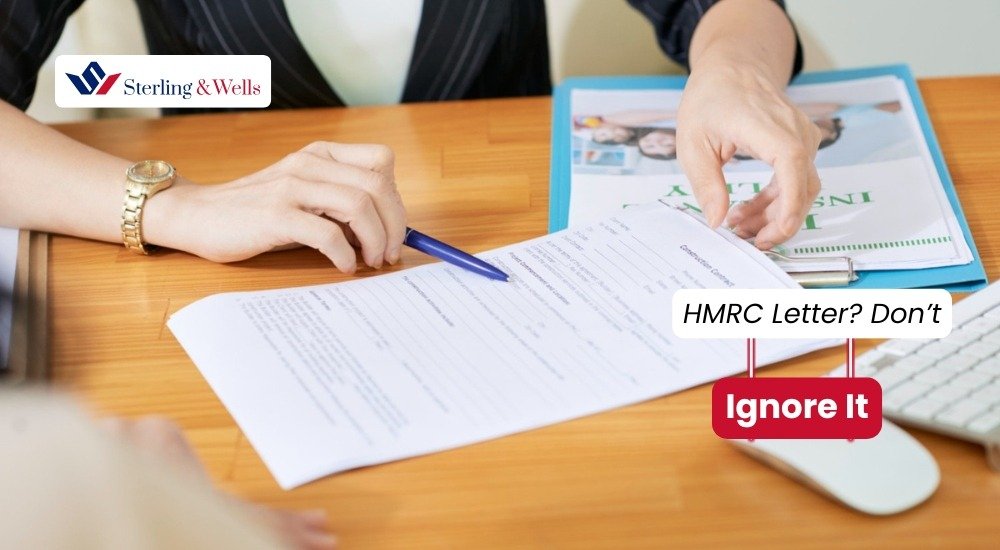If you live outside the UK but still earn income from the UK, you may have come across the term double taxation. For many non-residents, it raises an immediate worry: Will I really have to pay tax twice on the same income—once in the UK and again in the country where I live?
It’s a reasonable concern, especially if you’re filing a UK Self Assessment tax return for the first time. But the good news is that the tax system provides mechanisms to prevent this from happening. This guide breaks everything down clearly so you can understand how double taxation relief works, when it applies, and how to claim it correctly on your Self Assessment return.
Understanding Double Taxation and Why It Matters
Before diving into reliefs and forms, it’s important to understand what double taxation actually looks like in practice.
Imagine you’re a non-resident landlord with a UK rental property. The UK taxes you on that rental income because it arises from a UK source. But your country of residence might also tax you on the same income because many countries tax residents on their worldwide earnings. Without protective measures in place, you would end up paying tax twice on the same income — an outcome that feels burdensome and, quite frankly, unfair.
This is exactly why double taxation relief exists. It ensures that while you meet your obligations in both countries, you don’t take a financial hit purely due to overlapping tax rules. For non-residents filing a Self Assessment return, knowing how to apply this relief correctly can make a significant difference to your overall tax liability.
It’s crucial to note that according to HMRC’s official guidance (HS263), if you are not a resident of the UK, the Isle of Man, or the Channel Islands, you will generally not be entitled to claim relief against UK tax for foreign taxes paid. This is a fundamental limitation that applies to many non-residents. However, some relief may still be available under specific Double Taxation Agreements (DTAs) with certain countries. You should verify your eligibility with a tax professional before proceeding, as this significantly affects your ability to claim the relief described in this guide.
What Is a Double Taxation Agreement (DTA)?
A Double Taxation Agreement, or DTA, is a treaty between two countries that sets out how cross-border income should be taxed. The UK has one of the world’s largest networks of DTAs — over 130 agreements — each with its own rules and nuances.
These agreements typically outline:
- Which country has the primary right to tax specific types of income (e.g., rental income, salary, dividends, interest, royalties)
- Whether income is taxable in both countries, but with credit given, or
- Whether income should be taxed in only one country
For example, most DTAs specify that UK property income is taxable in the UK first, regardless of where the owner lives. But if your home country taxes you as well, the DTA gives you the right to claim a credit or exemption so the same income isn’t taxed twice.
Understanding how the DTA between the UK and your country applies to your situation is crucial when completing your Self Assessment.
Who Needs to Think About Double Taxation Relief?
If you are a non-resident with UK-sourced income, double taxation is almost always something you need to consider. Common forms of income affected include:
- Rental income from UK property
- Earnings from employment partly carried out in the UK
- Dividends or interest from UK investments
- Self-employment or business profits linked to UK activities
If you pay tax on this income in both the UK and your country of residence, you may be entitled to double taxation relief. Without claiming it correctly, you could end up paying more tax than necessary.
Non-residents should be aware that they generally cannot claim the UK personal allowance unless they are a national of an EEA country, a British citizen, a resident of the Channel Islands or Isle of Man, or specifically covered by a DTA provision. This means your non-resident tax liability is calculated on all your UK-sourced income without a personal allowance deduction—a significantly different position than UK residents. This further emphasizes the importance of understanding your specific DTA and claiming all available reliefs.
How Double Taxation Relief Works on Your Self Assessment
When you complete your Self Assessment tax return, the process of claiming double taxation relief usually involves two main steps:
- Report your UK-sourced income
You must declare all UK income that falls within Self Assessment rules — even if you are non-resident. This includes property pages, employment pages, dividend pages, or whichever supplementary forms apply to your income.
- Claim relief for foreign tax paid
You then provide details of:
- The amount of foreign tax paid
- The country where it was paid
- The type of income involved
HMRC will use this to reduce your UK tax bill by the amount of foreign tax already paid — up to the limit of the UK tax due on the same income.
It’s important to understand that double taxation relief cannot create a loss or refund that exceeds your UK tax liability on that income.
This mechanism ensures fairness while keeping the tax relief proportionate.
Important Tips When Claiming Double Taxation Relief
Claiming relief can be more complex than it seems, especially for non-residents. Here are some key points to keep in mind:
- Always keep proof of foreign tax paid, such as tax assessments, withholding certificates, or foreign tax returns.
- Check the specific DTA rules between the UK and your home country — each agreement is different.
- Be aware of significant post-April 2025 reporting changes. From 6 April 2025, the taxation rules for foreign income have been substantially reformed, including changes to how non-residents report foreign income and gains. Additionally, non-residents must now ensure all foreign income is properly reported even if certain types are not taxable. You should obtain professional guidance to ensure your return complies with these new rules.
- Ensure the foreign income is reported correctly on the right Self Assessment pages to avoid HMRC delays or queries.
- If claiming relief under a DTA, obtain a Tax Residency Certificate (TRC) from your country of residence—this is required by HMRC to substantiate your residency status and entitlement to treaty relief.
These details matter because HMRC may request supporting documents, especially if your return includes foreign tax credits.
Examples to Make It Clear
Example 1: UK rental income while living abroad
Let’s say you live in Spain and receive rental income from a UK property. Spain taxes you on your worldwide income, so you pay Spanish tax on that rental income. Because the UK also taxes you on the same income, a DTA ensures you can offset the UK tax against your Spanish liability or vice versa, depending on the DTA’s provisions.
Example 2: UK dividends taxed abroad
If you receive dividends from the UK and your country of residence taxes those dividends as well, you may be able to claim foreign tax credit relief on your UK Self Assessment, reducing your UK liability.
These examples show how DTAs prevent taxpayers from being caught between two tax systems.
How Sterling & Wells Can Support You
Tax rules for non-residents can be particularly challenging — different forms, unfamiliar terminology, and the complexities of foreign tax credits can easily result in mistakes.
Sterling & Wells offers support designed to simplify this entire process. Whether you need help understanding how your DTA applies, calculating foreign tax credit relief, or completing your Self Assessment accurately, the team provides tailored guidance to ensure your return is correct and compliant.
With growing changes in UK tax rules, especially those affecting individuals with foreign income, having professional support gives you confidence and peace of mind. Sterling & Wells helps you avoid unnecessary tax exposure, missed reliefs, or HMRC penalties — all while making the experience as stress-free as possible.
Conclusion
Double taxation may feel overwhelming when you first encounter it, but once you understand how the system works — and how to claim relief properly — the process becomes far more manageable.
DTAs exist to protect you from unfair double charges, and Self Assessment provides a structured way to claim the relief you’re entitled to. The key is understanding your income sources, knowing how the relevant DTA applies, and reporting everything accurately.
If you’re unsure at any point, support is available. Sterling & Wells can guide you through the entire process, ensuring your tax return reflects the correct relief and keeping your tax affairs in order as a non-resident.
With the right information and expert help when needed, you can file your Self Assessment with confidence — knowing you’re fully compliant and not paying more tax than you should.
